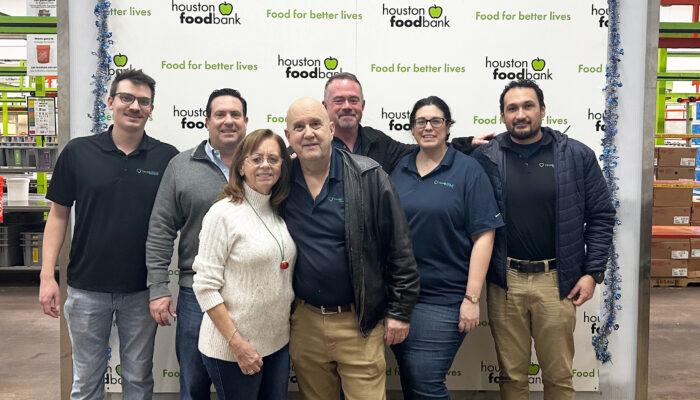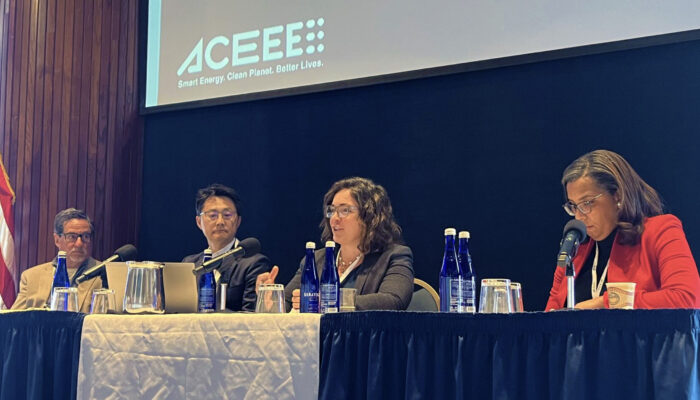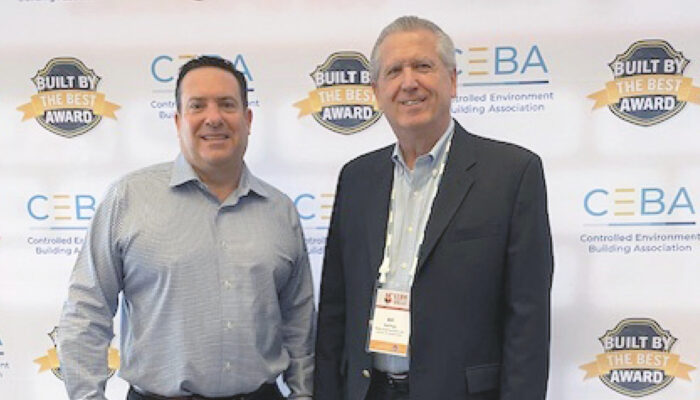
- Phase Change Material (PCM)
- Control System
- Remote Monitoring & Reporting Portal
Still have questions about our Thermal Energy Storage solution?
Call +1 832.781.COLD or click for more answers.
 Viking Cold Solutions Strengthens Community Bonds with Holiday Volunteer Effort at Houston Food Bank
Viking Cold Solutions Strengthens Community Bonds with Holiday Volunteer Effort at Houston Food Bank
Continuing our tradition of giving back, Viking Cold Solutions volunteered at the Houston Food Bank over the holiday season. The team rolled up their sleeves to tackle a variety of tasks, from building and breaking down boxes to packing essential food items for local pantries. Pallets of goods were transferred to assembly lines, and the kitchen buzzed with activity as a holiday lunch was prepared for those in need. The Houston Food Bank is a solution to both hunger and food waste. Around 1 million people in the 18 southeast Texas counties served by Houston Food Bank are considered food insecure – lacking consistent access to enough nutritious food to fuel a healthy life. To address this challenge, the Houston Food Bank distributes food and other essentials through a network of more than 1,600 community partners. In addition, the food bank provides programs and services aimed at helping families achieve long-term stability which include nutrition education, health management, and help in securing state-funded assistance and other services. At Viking Cold Solutions, we believe in paying forward our good fortune by supporting food banks across the globe with our Thermal Energy Storage technology. This innovative solution reduces energy costs and allows food banks to allocate more resources toward serving their communities. The most recent addition to Viking Cold Solutions food bank portfolio includes Feeding Northeast Florida. We completed a project for Feeding Northeast Florida in December just in time for the holidays and the New Year season. By providing food banks with sustainable technology, Viking Cold Solutions helps organizations like the Houston Food Bank and Feeding Northeast Florida to extend their reach and increase their impact in the fight against hunger.
 Thermal Energy Storage: Shaping the Future of Demand Management & Renewable Energy
Thermal Energy Storage: Shaping the Future of Demand Management & Renewable Energy
Renewable energy has long been synonymous with wind and solar — sources derived from nature’s ability to create energy that emit zero greenhouse gases. Today, Thermal Energy Storage (TES) is emerging as a critical component of the renewable energy landscape, standing alongside wind and solar as part of the solution for a cleaner, more resilient energy future. At this year’s Energy Efficiency Policy Forum, put on by the American Council for an Energy-Efficient Economy (ACEEE), demand response and virtual power plants (VPPs) were key topics of discussion, with Thermal Energy Storage increasingly recognized as a vital component. TES provides a reliable and cost-effective means of storing and releasing energy as cold or heat, helping balance supply and demand. By integrating with distributed energy resources like solar and wind, TES enhances the efficiency and flexibility of VPPs, storing excess renewable energy for later use, reducing grid strain, and improving energy resilience. The ACEEE is a nonprofit focused on advancing energy efficiency to foster economic growth and address climate change which is committed to reducing energy waste, supporting equitable economic opportunities, and improving public health and the environment. This year’s Policy Forum centered on shaping federal energy policies, with discussions on building efficiency, transitioning industries to low-carbon practices, and enhancing electric vehicle and freight systems. The forum aimed to influence policies that strengthen U.S. competitiveness and address climate challenges. Inspired by the discussions at the Energy Efficiency Policy Forum, Viking Cold Solutions leadership team took these learnings to the subsequent Department of Energy’s Deploy 24 Conference. The focus of the DOE conference was on accelerating the deployment of critical energy and decarbonization technologies, such as TES, across the U.S. At both events, Viking Cold engaged with policy makers, utility companies, and developers, exploring the growing opportunities TES offers for increased utilization of renewables. Viking Cold Solutions is ready to partner with our customers and ensure they achieve their sustainability goals. Photos by ACEEE and DOE.
 Driving Innovation and Sustainability: Highlights from CEBA
Driving Innovation and Sustainability: Highlights from CEBA
With energy costs on the rise and increasing pressure on companies to meet sustainability goals, energy efficiency has become essential for the cold chain and controlled-environment industries. The Controlled Environment Building Association (CEBA), part of the Global Cold Chain Alliance, focuses on advancing cold chain infrastructure by supporting the design, construction, and maintenance of cold storage facilities and other controlled environment buildings. Through its Conference & Expo, CEBA connects industry professionals, shares best practices, and promotes innovations that enhance safety, efficiency, and sustainability across temperature-controlled facilities. CEBA values sustainable design and improving facility resiliency, emphasizing the value of proactive planning to reduce costs, streamline workflows, and implement energy-efficient solutions like Viking Cold Solutions’ Thermal Energy Storage (TES) technology. The growing demand for energy and strain on the grid has sparked discussions at the event around alternatives such as solar power, natural gas generators, lithium batteries, and the construction of modern, efficient cold storage facilities to replace aging infrastructure. Solutions like TES help ensure consistent temperature control, operational reliability, demand reduction, and lowered energy consumption, supporting the cold chain industry's shift toward greater sustainability and resilience. With a record-breaking 500+ attendees at the 44th CEBA Conference & Expo, Viking Cold Solutions had the opportunity to network with decision makers, executives, and industry leaders. CEBA drives industry progress by fostering collaboration, encouraging innovation in facility design and construction, and supporting businesses in reducing costs and environmental impact. The conference also celebrated industry excellence with the Built by the Best Awards. Viking Cold Solutions congratulates Americold/Stellar on their win in the over $35M category for their ASRS facility in Russellville, AR, featuring 42,000 pallet positions, 136,000 square feet, and 140-foot clear heights. By supporting the development of modern, resilient facilities during events like their annual conference, CEBA strengthens the entire cold chain infrastructure to meet evolving demands.